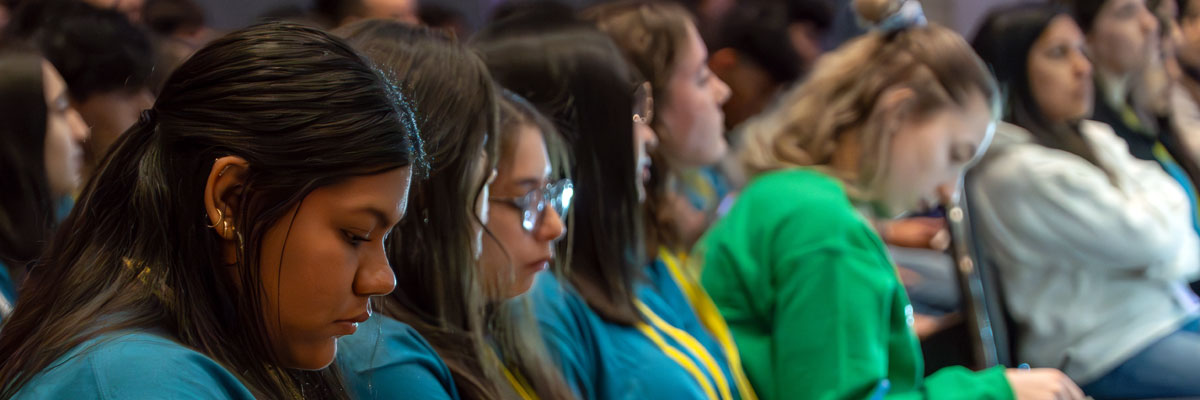Official Website of the
Catholic Diocese of Little Rock
30th Sunday in Ordinary Time, Year A
Published: October 25, 2020
Bishop Anthony B. Taylor preached the following homily in Oklahoma City on Sunday, Oct. 25, 2020.

Bishop Taylor
The United States is the first country in the world founded on the principle of separation of church and state. At that time, every other country had an official state religion, which had the good consequence of uniting those countries and transmitting shared values and beliefs, but which also legitimized the king, the status quo and thus the bad consequence of giving the king a great deal of control over the inner workings of the church in his domain.
In Catholic countries there was talk of the "divine right of kings" and agreements with the pope called concordats that spelled out how this union of church and state would function. In Protestant countries like England, the king himself was the head of both church and state directly. And in both Catholic and Protestant countries, adherence to anything other than the official state religion was illegal and penalized, which led some to emigrate in search of a place where they could live their faith freely.
So dissenting Puritans founded Massachusetts, dissenting Quakers founded Pennsylvania and dissenting English Catholics founded Maryland, all as places of refuge far from the direct control of the king and Church of England. Of course, these dissidents were not especially tolerant themselves: The Puritans forced Massachusetts Baptists to move on to found Rhode Island because their dissent was viewed as a threat to the religious unity of Massachusetts.
"What would Jesus do?" Given his Gospel of Life and his preferential love for the poor and oppressed because their needs are greater, "How would Jesus vote?" And also, considering his dealing with the political leaders of his day, "How would Jesus have us hold our leaders to account once the election is over?"
In last Sunday's Gospel Jesus addressed this issue of the relationship between church and state just in time for our national elections. When Jesus says "Give to Caesar what belongs to Caesar and to God what belongs to God" he's saying two things: (1.) Caesar and God each have a legitimate claim on us; and (2.) God's claim on us is greater.
That's why we say we are "One nation UNDER God" even though we seldom act that way. Like the kings of old, what we really want is for God to legitimize whatever we think best serves our — often selfish — interests, be it our military objectives even though they fail to meet the criteria for a just war, our economic policies, our tolerance of those who seek to redefine marriage as something other than the permanent union of one man and one woman, and above all our failure to protect human life and human rights from the first moment of conception to natural death.
In preparation for our upcoming elections, the USCCB (U.S. Conference of Catholic Bishops) has once again published a document titled: "Faithful Citizenship," which is a brief summary of Catholic teaching to help us use the teaching of Jesus to form our consciences so that we can make sound moral judgments regarding the political issues of our day — the claims of Caesar — and thereby "Give to God what belongs to God" through our participation in the political life of our country.
This document highlights four areas of special concern: defending human life against the threat of abortion, promoting family life, especially the sanctity of marriage, pursuing social justice, especially the human rights of immigrants, and practicing global solidarity, especially the obligation to avoid war and promote peace, to help alleviate global poverty and promote human rights.
Last Sunday's Gospel reminded us that Caesar and God do not have an equal claim on us. God's claim on us is greater, which we must keep in mind as we decide how to vote.
Today's first reading applies this principle to the issue of immigration: "You shall not molest or oppress an alien, for you were once aliens yourselves in the land of Egypt ..." to which we can add "for you yourselves descend from immigrants." And this and all the other issues before us should be examined in the light of the twofold Great Commandment in today's Gospel: "You shall love the Lord your God with all your heart, with all your soul, and with all your mind ... and your neighbor as yourself."
Another way of saying this is simply to ask yourself, "What would Jesus do?" Given his Gospel of Life and his preferential love for the poor and oppressed because their needs are greater, "How would Jesus vote?"
And also, considering his dealing with the political leaders of his day, "How would Jesus have us hold our leaders to account once the election is over?"









